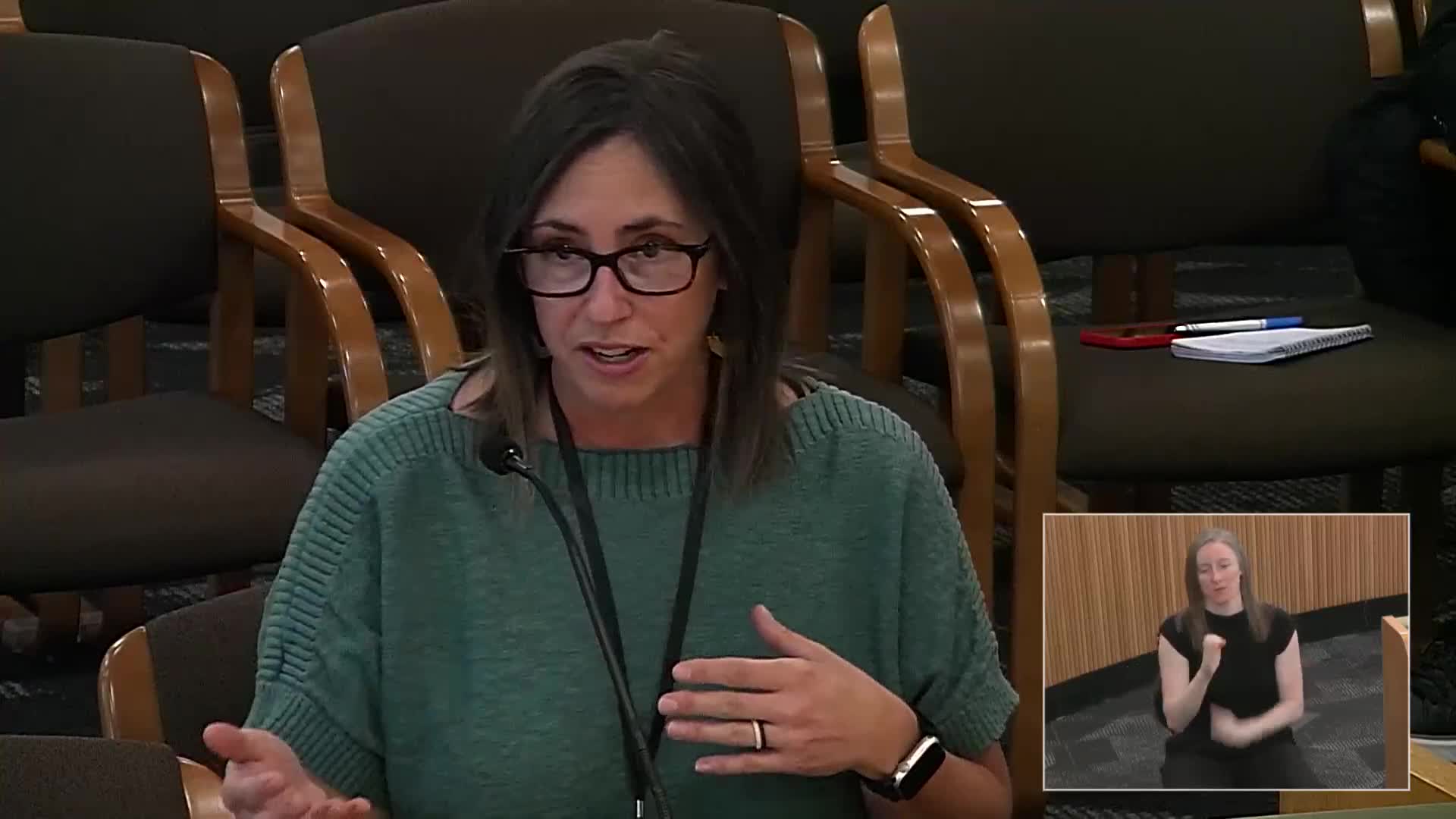ODE proposes early‑literacy coaching network and technical fixes to statewide literacy law
Get AI-powered insights, summaries, and transcripts
Subscribe
Summary
House Bill 3,040, presented informally to the Senate Education Committee, would add technical fixes to Oregon’s Early Literacy Success Initiative and create a statewide regional literacy coaching program to provide embedded, evidence‑aligned support to teachers and districts.
The committee received an informational presentation on House Bill 3,040, which would strengthen and extend the 2023 Early Literacy Success Initiative (HB 3,198) by adding technical fixes and creating a statewide regional literacy coaching program.
Jonah Timbs (ODE) summarized the bill and recounted the 2023 investment that directed “90,000,000 plus, in the 2023‑25 biennium” to birth‑to‑five and K–3 literacy work. Timbs said HB 3,040 does several things: it expands eligibility for professional development to include instructional assistants; it permits districts to continue using state‑supported curriculum funds in grades 4 and 5 to maintain curriculum coherence; it gives ODE stronger authority to intervene with districts that fail to meet goals in their early literacy success plans; and it establishes a regional literacy coaching program intended to provide embedded coaching support in schools and districts most in need.
Timbs described the coaching model as informed by other states and evidence: coaches would spend multiple days per week working directly in schools with teachers and administrators, and time at district and regional levels to build leadership capacity and scale strategy. The measure would also require ODE to report on the program annually to the governor and legislature by Feb. 1 and to conduct a biennial program review; money in the Statewide Education Initiatives account could fund the program.
Dr. Charlene Williams, ODE director, and classroom teachers and senators who participated in the discussion stressed the importance of consistent, sustained practice rather than short‑term program “hopscotch.” Senators and attendees raised equity and service‑level questions — for example, how the model serves students with dyslexia or intellectual disabilities — and ODE said the coaching approach is designed to work across the full continuum of student needs and to leverage existing regional partners (including ESDs) where appropriate.
The hearing was informational; no committee vote was recorded.
